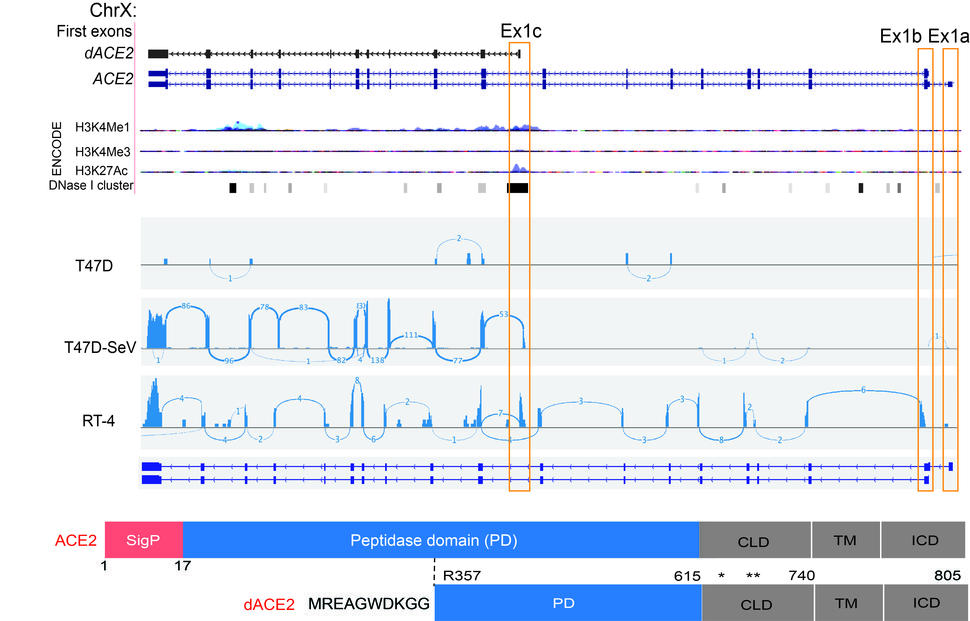Novel Isoform of ACE2 Resolves Concern about Interferon-based Treatments for COVID-19
, by DCEG Staff
An international team of researchers, led by Ludmila Prokunina-Olsson, Ph.D., identified a novel isoform of ACE2 (the cell receptor used by the SARS-CoV-2 virus to infect the body) which they designated deltaACE2 (dACE2). The new report, which suggests that production of ACE2 is not affected by the presence of interferons, was published online October 19, 2020, in the journal Nature Genetics.
Prior studies reported elevated ACE2 expression in interferon-high conditions such as viral infection or interferon treatment in vitro. In the current report, investigators observed that instead of full-length ACE2, interferon exposure induced its novel truncated version, dACE2, which appears to function very differently and does not act as a gateway for viruses to enter the cell. These results reassure that interferon-based treatments for COVID-19 would not increase infection.
The researchers reported dACE2 expression to be common in squamous tumors of the respiratory, gastrointestinal and urogenital tract, and particularly enriched in squamous lung tumors (LUSC), which are of bronchial origin and likely to be targeted by SARS-CoV-2. Cancer patients are considered to be at a higher risk of more severe COVID-19 outcomes compared to the general population due to older age, comorbidities, and effects of cancer and cancer treatments. Lung cancer patients are at particularly increased risk of severe COVID-19 outcomes. Evolutionary mechanisms defining the primate-specific expression and function of dACE2 in COVID-19 and possibly other outcomes, should be further explored, with specific focus on cancer patients.
This study underscores the need for improved understanding of the biological importance of host response to viral infections, such as SARS-CoV-2, as well as the ability of the international research community to mobilize rapidly to address emerging questions of concern.
Reference
Onabajo, O.O., Banday, A.R., Stanifer, M.L. et al. Interferons and viruses induce a novel truncated ACE2 isoform and not the full-length SARS-CoV-2 receptor. Nat Genet (2020).
